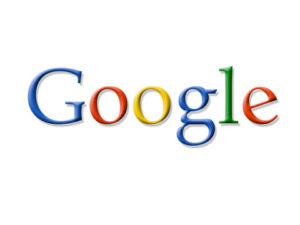Will Google’s Customer Match Make Hash of Traditional SEM?
by Sonja Kroll on 15th Oct 2015 in News


Innovation is not always what it’s cracked up to be. Building something first sometimes means little more than clearing a minefield for those coming behind you, says Dave Hendricks, president and managing director of LiveIntent UK (pictured below). In this piece, he discusses the impact of Google's Customer Match on SEM.
If you’re looking for proven success, iteration may actually be where it’s at for you.
No matter how many self-driving cars Google ever eventually puts on the road, it will probably always be known for its signature product: search advertising. In case you weren’t aware, Google didn’t invent SEM, they just iterated it and came up with a better business model than the first mover, Overture...
While Gmail is synonymous with web-based email for many, Google didn’t invent web email either. We can credit Sabeer Bhatia for inventing ‘HoTMaiL’ back in the 1990s. Microsoft were smart enough to buy into web mail for USD$400m, when that was real money. Yahoo were the ones who iterated on that idea and created the one product that is keeping people going back to Yahoo, 'Yahoo Mail'.
When Google rolled out Gmail, circa 2005, no one thought much of that. After all, wasn’t email dead? Fast-forward to today, and Gmail is the dominant P2P email platform in the world. It wasn’t as successful taking on Facebook with Google+, and its fortunes in mobile search have also been criticised. So much so that Google, once universally feared, has been compared to Microsoft as of late. Not because of hegemony, but because some have seen them as having missed the whole mobile revolution.
 So, when Google formally announced their long-rumoured answer to Facebook’s Atlas and Custom Audiences offerings, the reception was surprisingly muted. Doesn’t anyone care what Google are doing with your data anymore? Even during the week when the EU commission invalidated the EU-US Safe Harbor pact, the reaction to Google’s product announcement was unexpectedly underwhelming.
So, when Google formally announced their long-rumoured answer to Facebook’s Atlas and Custom Audiences offerings, the reception was surprisingly muted. Doesn’t anyone care what Google are doing with your data anymore? Even during the week when the EU commission invalidated the EU-US Safe Harbor pact, the reaction to Google’s product announcement was unexpectedly underwhelming.
But regardless, Google are going to match your CRM data with their logged-in user data.
In a nutshell, 'Customer Match', lets advertisers upload a list of email addresses and build ad campaigns to match users on Gmail, YouTube, or Google in real-time, when they are using those services. Google’s late entrance is of the utmost interest because they promise to fuse the most ‘intentful’ of digital media: Email and Search.
Up til now, search was a pretty anonymous activity, even if you were logged in to Google. The potential for more intelligent search results powered by CRM data from brands opens up tremendous new opportunities for marketing.
For brands that are concerned with churn and conquest – like Telecom and Automotive – the combination of search and CRM email data will surely provide ways to reach customers when they are in the consideration – or reconsideration – phase.
For brands that are seeking to reach an audience with video, the potential to place a pre-roll or long-form instructional video in front of a customer that may have ‘requested more information’ on a form on a site is another interesting application.
Does this new capability steal spend from Facebook’s Custom Audience or even Atlas? It’s hard to tell. What I call ‘CRM Retargeting’ is truly in its infancy. Will this steal budget from Criteo or RocketFuel? Also hard to tell. Will Yahoo wake up and realise that they can do the same thing – real-time programmatic audience matching based on email addresses, since they also have a logged-in user platform of hundreds of millions of people?
What Customer Match will certainly accomplish is the creation of awareness among a larger group of marketers who have not connected the concept of ‘email’ with anything other than sending newsletters. Google’s adoption of ‘People-based Marketing’ will surely kick off a wave of interest among agencies for whom the data focus has been consistently reliant on third-party cookies and probabilistic matching. SEO and SEM consultants might even start throwing around the word ‘hash’ so they can appear hip.
Now that Google are embracing deterministic with Customer Match, what will happen to the lowly third-party tracking cookie? Will last-click attribution fall to the wayside as marketers learn to love the logged-in user? Is Google Customer Match the precipitating event that will kick off the era of Programmatic Identity?








Follow ExchangeWire